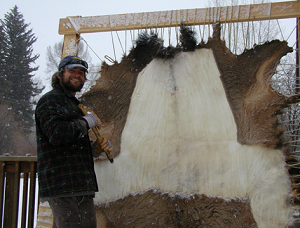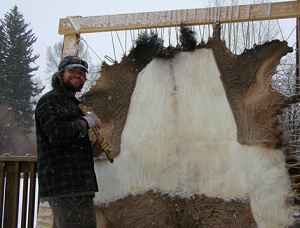 I grew up in the suburbs of Chicago, where meat came from a Styrofoam container and milk from a carton.There are four generations between me and the last farmer in my family.
I grew up in the suburbs of Chicago, where meat came from a Styrofoam container and milk from a carton.There are four generations between me and the last farmer in my family.
In my early and mid-20s, I began to learn about plant identification, and about which wild plants in my area I could eat or use for medicine. This heightened my relationship with plants, and the value of understanding where my food comes from started to grow in my heart. I didn’t start hunting until I was 28 years old and had lived in the Rocky Mountains for six years. By that time, I had learned a lot about elk ecology and mountain habitat. I had also spent a lot of time thinking about hunting. 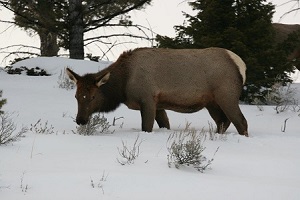 There’s an old saying that “when the student is ready, the teacher will appear,” and this was true for me. I met a fellow biologist who was a few years younger than me who had been hunting since he was 11 years old, and we shared a similar land ethic. He became my hunting mentor.
There’s an old saying that “when the student is ready, the teacher will appear,” and this was true for me. I met a fellow biologist who was a few years younger than me who had been hunting since he was 11 years old, and we shared a similar land ethic. He became my hunting mentor.
Since then, I have learned so much about the Ghosts of the Forest (a Native American nickname for elk). I have become intimate with them beyond description, and I am still always humbled by them. There is nothing I do in my life that evokes stronger emotional extremes. I experience great joy when I acquire the year’s meat. The lean meat is devoid of antibiotics and growth hormones. With wild animals, I don’t have to worry how the elk was treated in captivity, and it doesn’t require a fossil fuel-burning semi-truck to get the meat to Jackson Hole. Local author Ted Kerasote coined the expression “fossil fuel vegetarian,” and I think about this as I hunt. 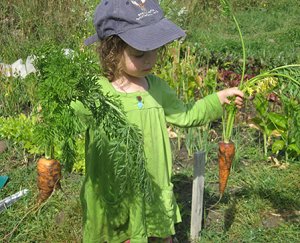 This expression acknowledges the importance of reducing our footprint by eating lower on the food chain, but it also questions the environmental impacts of eating avocados and Brazil nuts from South America versus elk (or even cattle) from your local valley.
This expression acknowledges the importance of reducing our footprint by eating lower on the food chain, but it also questions the environmental impacts of eating avocados and Brazil nuts from South America versus elk (or even cattle) from your local valley.
Every time I eat the dried meat or take elk meat out of the freezer, I am reminded of the story of the great animal. I feel dramatic sorrow when I kill an elk, and I’m often brought to tears. I have heard of hunters who, at some point in their lives, stop hunting because the weight of killing just gets too heavy. They decide that binoculars and cameras will be their only tools in the woods. For me, it’s different, even opposite: I will stop hunting if the pain of killing eases, because I will know then that I have lost sight of the incredible responsibility of taking the life of these beautiful animals. It is essential that my heart is melancholy after I kill an animal. One of my life goals is to treat a carrot pulled from my garden, a mosquito brushed off my arm and accidentally killed, or a fish caught from the Snake River with the same reverence that I treat an elk. The word “harvest” is often used to refer to killing a deer or elk. I prefer to call it what it is. Though, come to think of it, I don’t say, “I’m going out to the garden to kill onions and beets.” Perhaps I should consider it.
It is the least that I can do to eat and share with friends all of the elk’s meat and edible internal organs. In addition to packing the four legs, tenderloins, and backstraps out on my back and sled, I trim off the rib and neck meat. I call the rib and neck meat stuffed into an old pillow case with heart, liver, and kidneys “the fifth quarter.” It’s a lot of meat to be ground up, and most folks leave it in the woods. One of my goals as a father is to make sure that my daughter understands where her food and other materials come from. 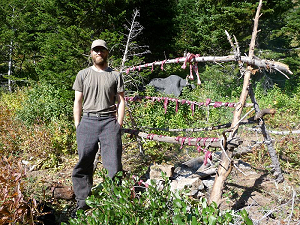 So, in addition to eating the elk meat, we tan the animal’s hides and make clothing and other articles from them, use the fat for candles and soap, and save the sinew for sewing and cordage.
So, in addition to eating the elk meat, we tan the animal’s hides and make clothing and other articles from them, use the fat for candles and soap, and save the sinew for sewing and cordage.
If you see me drop to a knee at the trailhead on my way into the woods, I’m saying a prayer: “May the Spirit of the Elk look highly upon me, and if She should present herself, may the sword be swift.” The hunter is not an enemy of the hunted. Hunting is not a battle or a war or an expression of ego or machismo. Rather, it is a reverent, humble dance.

